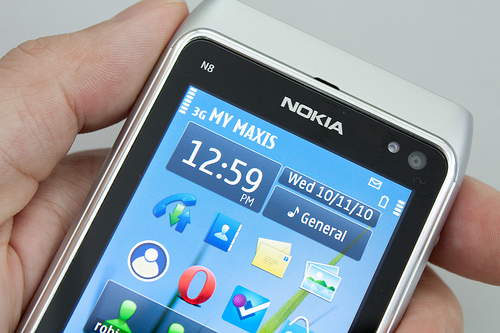Smart Phone Use in a Higher Educational Setting
INST 525 Eileen O'Sullivan
Abstract
The adoption of smart phones (cellular phones equipped with internet) among college-aged students is happening at a phenomenal rate. Cell phones are ubiquitous for this demographic and have already virtually replaced landlines. Will smart phones replace the computer for this user population?
Internet-Enabled Cell Phone (Smart Phone)
|
What factors are influencing the accelerated adoption of smart phones for this population? Is the smart phone particularly well suited for the college-aged population or does this technology hold broader appeal for other demographics as well? Wide scale adoption of smart phones has many implications real time GPS tracking of individuals, the potential for personalized, real-time advertising to this desirable demographic, changes in consumer expectations of immediate and 24/7 availability of entertainment and service, a rejection of earlier technologies and an increase in bandwidth demands. Is the college-aged demographic leading the pack in adoption or are they a new generation reflecting a new relationship with technology?
What are the potential applications for teaching and learning? What supports and obstacles exist with regard to the use of this innovation in teaching and learning? What factors about the technology itself and about the environment in which you envision it being used suggest that the technology will stick, i.e. come into widespread use (in contrast to becoming just a passing fad)? How might use of this technology alter/affect the student/teacher relationship? How might use of this technology impact the school or other learning institution as an organization? What ethical issues might be associated with this innovation? Could this technology narrow or widen the gap in inequity between students and/or society in general? What new skills and knowledge would teachers need to use this innovation? How can teachers best develop the skills to employ effectively these technology skills? Will this technology make the 20th century classroom irrelevant or obsolete? How will this technology change educational practice? What is the best way to provoke the introduction of this technology into the educational system? How can we assess the effectiveness of this technology for teaching and learning purposes?
